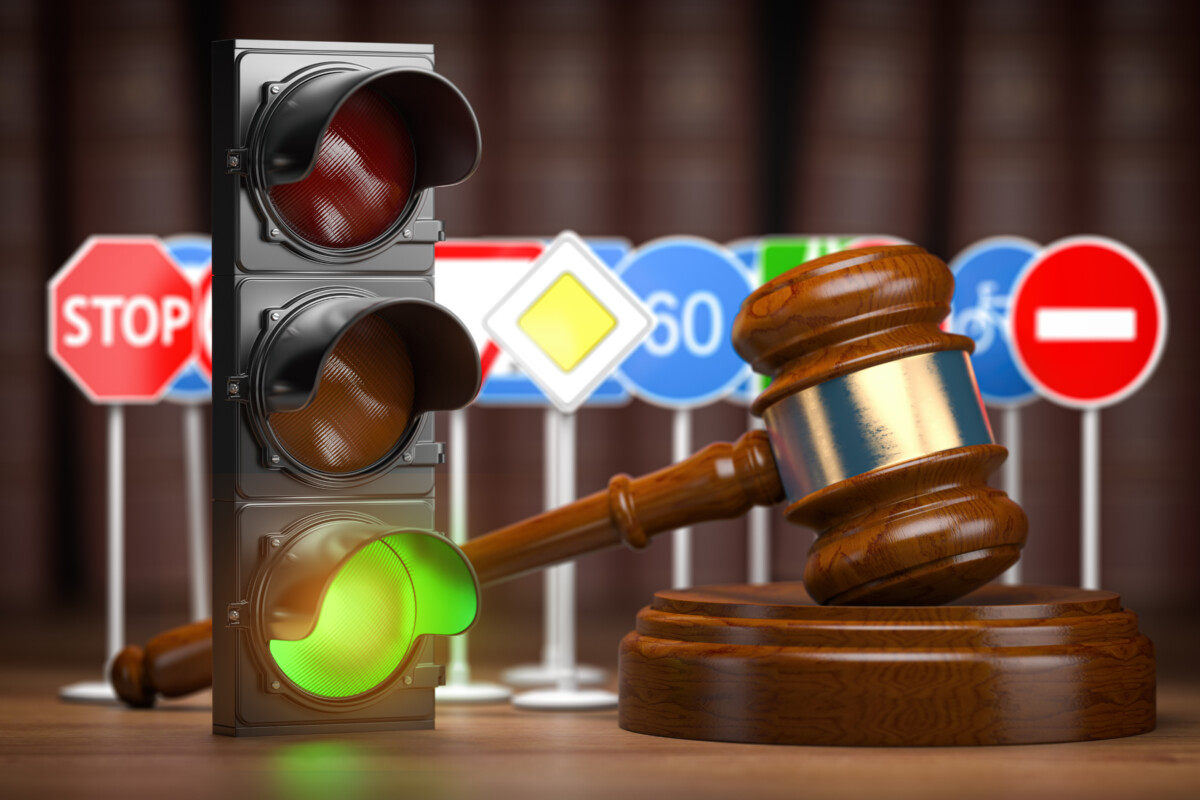Pennsylvania Motor Vehicle Accident Laws: What to Do After a Crash

Navigating the aftermath of a car accident requires a solid understanding of the state’s Pennsylvania motor vehicle accident laws. These laws dictate how claims are processed and outline the rights and responsibilities of drivers involved in accidents, significantly impacting compensation outcomes.
Overview of Pennsylvania Motor Vehicle Accident Laws
Pennsylvania’s motor vehicle accident laws aim to protect both drivers and pedestrians. The state employs a modified comparative negligence rule, meaning that if you are partially at fault for an accident, your compensation may be reduced accordingly. Therefore, gathering evidence to establish liability is crucial.
Key Aspects of Pennsylvania Motor Vehicle Accident Laws
- No-Fault Insurance System: Your own insurance typically covers medical expenses and lost wages after an accident, regardless of fault.
- Statute of Limitations: Victims have two years from the accident date to file a personal injury lawsuit; missing this deadline can forfeit your right to compensation.
- Liability and Negligence: If you are found more than 50% at fault, you may not recover damages.
Important Statistics
- In 2020, Pennsylvania reported over 120,000 crashes, resulting in more than 1,000 fatalities.
- The average cost of a car accident can exceed $20,000, factoring in medical expenses and repairs.
Understanding these laws is essential for effectively navigating post-accident procedures and securing appropriate compensation.
Types of Motor Vehicle Accidents in Pennsylvania
Motor vehicle accidents are a common occurrence on Pennsylvania roads, making it essential for drivers and passengers to understand the laws that govern them. Pennsylvania motor vehicle accident laws are in place to protect the rights of individuals involved in accidents, allowing victims to seek compensation for their injuries and damages. Familiarizing yourself with the types of accidents that frequently happen can help you navigate these laws and know your rights.
Motor vehicle accidents can vary widely, each with distinct circumstances and legal implications. Here are some prevalent types of accidents in the state:
Single-Vehicle Accidents
- Involve only one vehicle, often due to driver error or adverse conditions. They represent a significant portion of crashes in Pennsylvania.
Multi-Vehicle Accidents
- Involve two or more vehicles and can complicate fault determination. These accidents often lead to severe injuries and damages, making knowledge of Pennsylvania laws crucial.
Pedestrian Accidents
- Increasingly common in urban areas, these accidents highlight the need for driver vigilance, as Pennsylvania law prioritizes pedestrian rights.
Bicycle Accidents
- With the rise in cycling, these accidents can result in serious injuries. Pennsylvania has specific laws to protect cyclists, which are important for both drivers and cyclists to understand.
Determining Fault in Pennsylvania Accidents
Navigating the aftermath of a car accident in Pennsylvania requires a solid understanding of the state’s motor vehicle accident laws. These laws dictate how claims are processed and play a crucial role in determining fault. Knowing these regulations can help protect your rights and ensure you receive the compensation you deserve.
In Pennsylvania, determining fault is essential in the claims process. The state follows a modified comparative negligence rule, allowing fault to be shared among parties. If you are less than 51% at fault, you can still recover damages, but your compensation will be reduced by your percentage of fault.
Understanding Comparative Negligence
- What is Comparative Negligence?
This legal doctrine allocates fault among parties involved in an accident. - Example Scenario:
If you are 30% at fault for an accident with $10,000 in damages, you would receive $7,000. - Importance of Evidence:
Collecting evidence, such as photographs and witness statements, is crucial for establishing fault.
Insurance Companies and Fault Determination
- Role of Insurance Adjusters:
Adjusters review evidence to assign blame. - Impact on Claims:
Being deemed at fault can increase your insurance premiums and complicate recovery efforts. - Statistical Insight:
In 2020, Pennsylvania reported over 120,000 crashes, underscoring the importance of understanding fault.
In summary, being informed about Pennsylvania’s motor vehicle accident laws and the comparative negligence system is vital for advocating your rights and achieving a fair resolution.
Insurance Requirements for Pennsylvania Drivers
Driving in Pennsylvania requires a solid understanding of the state’s motor vehicle accident laws, particularly regarding insurance requirements. These laws dictate how accidents are managed and emphasize the importance of having adequate insurance coverage, which can significantly influence the outcome of an accident.
Pennsylvania mandates that drivers carry a minimum amount of auto insurance as a legal obligation and a safety measure. The state operates under a no-fault insurance system, meaning your insurance covers your medical expenses and losses, regardless of fault in an accident.
Minimum Coverage Requirements
- Bodily Injury Liability: $15,000 per person and $30,000 per accident.
- Property Damage Liability: $5,000 per accident.
- Personal Injury Protection (PIP): $5,000 minimum.
While these minimums provide basic coverage, experts recommend higher limits for better financial protection.
Additional Coverage Options
Consider these additional coverages for enhanced protection:
- Comprehensive Coverage: Covers non-collision damages (e.g., theft).
- Collision Coverage: Pays for vehicle repairs after an accident.
- Uninsured/Underinsured Motorist Coverage: Protects against drivers with insufficient insurance.
With over 120,000 reportable crashes in 2020, understanding these insurance requirements is essential for all Pennsylvania drivers. Always review your policy to ensure adequate coverage.
Legal Procedures Following a Motor Vehicle Accident
Understanding Pennsylvania motor vehicle accident laws is essential for anyone involved in a car crash. These laws govern how accidents are managed, from insurance claims to legal proceedings, ensuring victims receive the compensation they deserve. Familiarity with the legal procedures can help you navigate the aftermath of an accident more effectively, reducing stress during a challenging time.
In Pennsylvania, specific legal procedures must be followed after a motor vehicle accident.
Reporting the Accident
- Call the Police: Report the accident, especially if there are injuries or significant damage.
- Obtain a Police Report: This report is crucial for insurance claims and potential legal action.
The police will document the scene and create an official report, which is vital for dealing with insurance companies or court cases. Failing to report an accident can lead to penalties.
Gathering Evidence
- Take Photos: Capture images of the scene, vehicle damage, and injuries.
- Collect Witness Information: Get names and contact details of witnesses.
This evidence strengthens your case when filing claims.
Contacting Your Insurance Company
- Report Promptly: Notify your insurer as soon as possible.
- Provide Accurate Information: Be honest to avoid complications.
Pennsylvania is a no-fault state, meaning your insurance covers your medical expenses regardless of fault. Prompt reporting and accuracy are crucial for a smooth claims process.
Common Injuries and Compensation in Pennsylvania Accidents
Understanding Pennsylvania motor vehicle accident laws is essential for victims, as these laws dictate how claims are filed and the compensation available for injuries. Familiarizing yourself with your rights and common injuries can significantly aid in navigating the aftermath of a collision.
Motor vehicle accidents can result in various injuries, including:
- Whiplash: A neck injury from sudden head movement, often leading to chronic pain.
- Fractures: Common in severe accidents, especially in arms, legs, and ribs.
- Traumatic Brain Injuries (TBI): Resulting from head impacts, these can cause cognitive and emotional changes.
- Spinal Cord Injuries: Can lead to paralysis or loss of sensation, greatly affecting quality of life.
- Soft Tissue Injuries: Such as sprains and strains, which may require extensive rehabilitation.
Compensation for Injuries in Pennsylvania
Victims can seek compensation for:
- Medical Expenses: Covers all related medical bills.
- Lost Wages: Compensation for income lost during recovery.
- Pain and Suffering: Accounts for emotional and physical distress.
- Property Damage: Covers repair or replacement of damaged vehicles and property.
Statistics on Motor Vehicle Accidents in Pennsylvania
In 2020, Pennsylvania reported over 120,000 motor vehicle crashes, resulting in over 1,000 fatalities, with about 70% leading to injuries. The average injury claim ranges from $15,000 to $30,000, emphasizing the importance of understanding your rights.
FAQs – Pennsylvania Motor Vehicle Accident Laws
1. Is Pennsylvania a no-fault state for auto accidents?
No, Pennsylvania is a fault-based state. This means the driver responsible for causing the accident is liable for damages.
2. Who determines fault in an auto accident in PA?
Fault is typically determined by insurance companies based on evidence like police reports, witness statements, and accident investigations. In some cases, it may be decided in court.
3. How many car accidents are there in PA?
Pennsylvania experiences tens of thousands of car accidents annually. For the most recent statistics, consult the Pennsylvania Department of Transportation (PennDOT) or state traffic safety reports.
4. What are you required to do if you are in an accident in PA?
You must stop immediately, provide your information, render aid if necessary, and report the accident to the police if there are injuries, fatalities, or significant property damage.
FINAL THOUGHTS
Knowing Pennsylvania motor vehicle accident laws helps you act responsibly and protect your rights if you’re involved in a crash. Since PA is a fault-based state, gathering evidence and cooperating with authorities is crucial. Always report accidents as required, and consult an attorney if you face serious injuries or legal complexities.
You may be eligible for compensation. Find out now at LegalCaseReview.com or call 📞 (833) 279-1850 for your free consultation.



